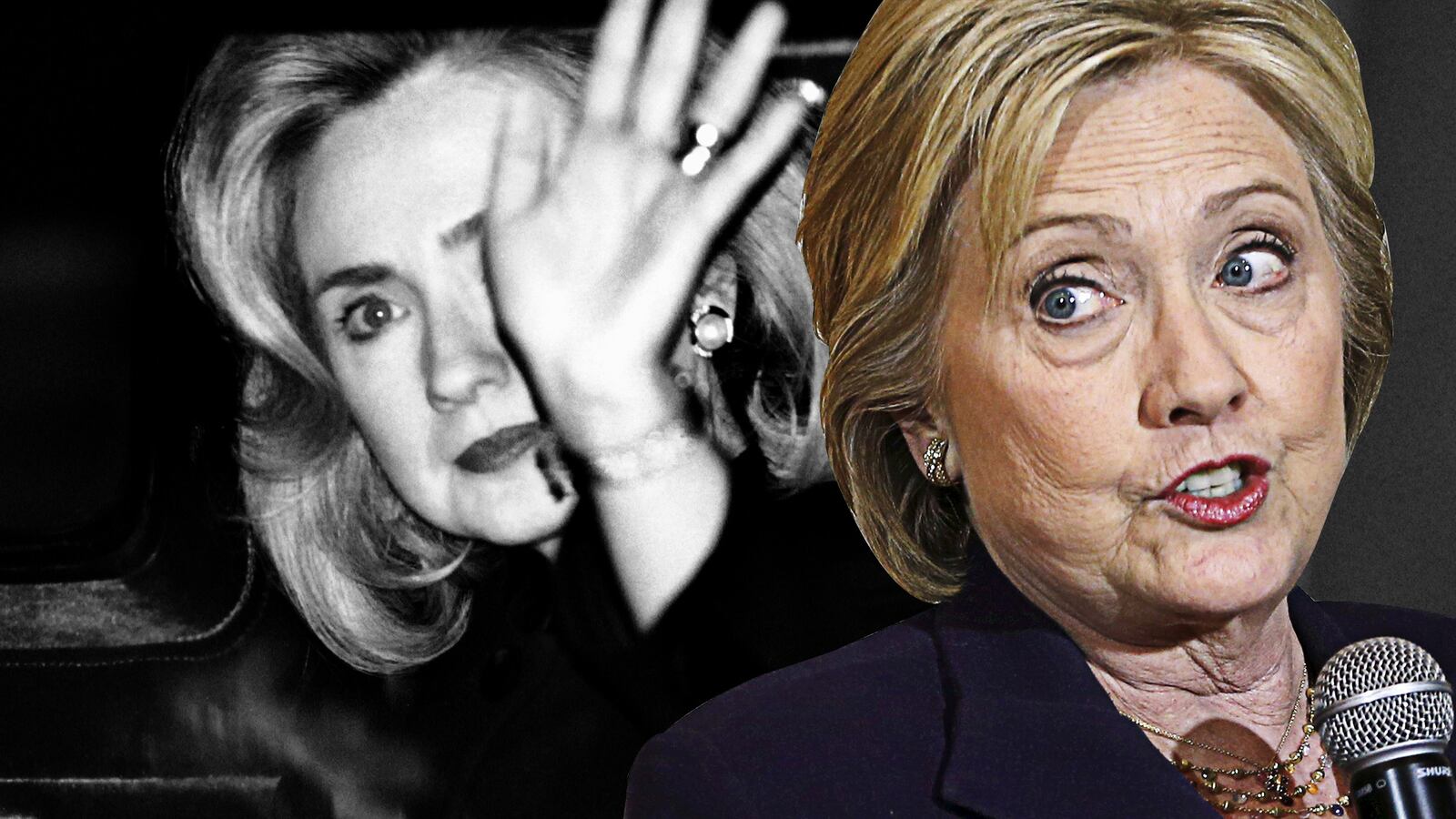Hillary Clinton and Bernie Sanders are running away from the Crime Bill, aka the Violent Crime Control and Law Enforcement Act of 1994, and that’s no small thing. The bill helped stamp out a raging national epidemic of violence and murder, and it was President Bill Clinton’s brainchild. Maybe that’s why twenty-something years ago, Hillary and Bernie stood behind the law.
First Lady Clinton lauded it, and then-Congressman Sanders voted for it. In January 1996, just weeks before February’s uncontested Democratic New Hampshire Primary, Clinton went so far as to condemn the “kinds of kids that are called ‘superpredators.’ No conscience, no empathy,” adding, “We can talk about why they ended up that way, but first we have to bring them to heel.” But time flies, the wheel turns, and so 2016, is a whole ‘nother story.
Both Clinton and Sanders can read the polls, which show that progressives, animated now by the Black Lives Matter movement, believe efforts to curb crime in the 1980s and ’90s went way too far. So the candidates pander away, with a message pitched to the Democratic faithful, as opposed to America writ large.
Clinton’s 2015 campaign rollout video contained no footage of cops or firefighters—although Blue America, in all of its Technicolor hues, was vividly showcased. Weeks later at Columbia University, Clinton demanded the end to the “era of mass incarceration.”
Then, after her triumph in Nevada, Clinton gave a shout-out to Ferguson, Missouri; the Show-Me State goes to the polls a week from Tuesday. Likewise, after decimating Sanders in South Carolina, Clinton repeated her call for criminal justice reform. For Clinton, life on the campaign trail, for as long as Sanders is in the race, is about tending to the base all the time.
But here’s the unfortunate thing: Listening to Hillary and Bernie on the stump, you would never know that the Crime Bill actually worked. So let’s take a trip down memory lane.
When the Crime Bill was first enacted, America was a much more violent place. 1994 had marked the fifth year in a row in which more than 23,000 people were murdered across the country. As President Bill Clinton framed things, “Gangs and drugs have taken over our streets and undermined our schools … Every day, we read about somebody else who has literally gotten away with murder.” Dead on, we might say, and not surprising, because Bill had his hand on America’s pulse.
Fortunately, the Crime Bill put an end to that horror, as it authorized hiring 100,000 more police officers to patrol America’s streets, expanded the death penalty, encouraged states to lengthen prison sentences, allocated $1.6 billion to prevent and investigate violence against women, and even banned assault weapons.
Results came quick as criminals were put behind bars. By 1995 the homicide rate had dipped by about 10 percent, and it kept dropping. In 1996, on top of winning reelection, Bill Clinton came within three points of winning the white vote, a feat a Democrat has not repeated since. By 2000, the murder rate had declined by almost 40 percent from its peak, according to the FBI.
By contrast, this time out, Hillary Clinton seems prepared to jettison what works in November and has proven to keep Americans safe, all for a shot at the Democratic presidential nomination—even as some of the nation’s largest cities become more violent.
In Chicago, crime has already picked up where it left off in 2015. This past January, there were 51 murders, most of which were attributable to gang violence, and over the weekend the Windy City’s shooting spree continued. Meanwhile in Baltimore—just a quick 30-minute Amtrak ride miles from the White House—2015 closed out with a record 342 murders.
Staring at this horror, it actually looks like #NoLivesMatter better describes life in the cities, and maybe Clinton ought to be talking about that. But she won’t, at least not until Bernie is off the stage.
Regardless, by the time Election Day 2016 arrives, Clinton will have no choice but to sound like a law-and-order Democrat again. Right now, the polls show her losing by a step to Donald Trump in Ohio (PDF), and in Florida, just a whisker ahead of Marco Rubio, and a little behind Trump (PDF).
In Deep Blue Washington, D.C., residents say that crime is their No. 1 problem, just as they do in the Big Apple.
So as Clinton is forced to confront activists enraged by her past remarks concerning wanton violence, she would also do well to remember that crime dislodged the Democrats from the White House in 1968, the same way that in 1988 crime helped propel George H.W. Bush to Ronald Reagan’s third term. Indeed, right now, Clinton is doing nothing to prevent herself from becoming the Second Coming of Mike Dukakis.
Demanding that police all wear body cameras, as Clinton has, is not a winner in the general election. Her proposal sounds as silly as Dukakis looked when he drove around like Snoopy in that tank.
As her strongest supporters have conceded, Clinton’s fall campaign will be about “scorching the earth”—as opposed to offering up a vision. Especially under these circumstances, Clinton would do best to heed the very warning imparted to the GOP by Paul Begala, an adviser to her super PAC: “Be afraid. Be very afraid.”






